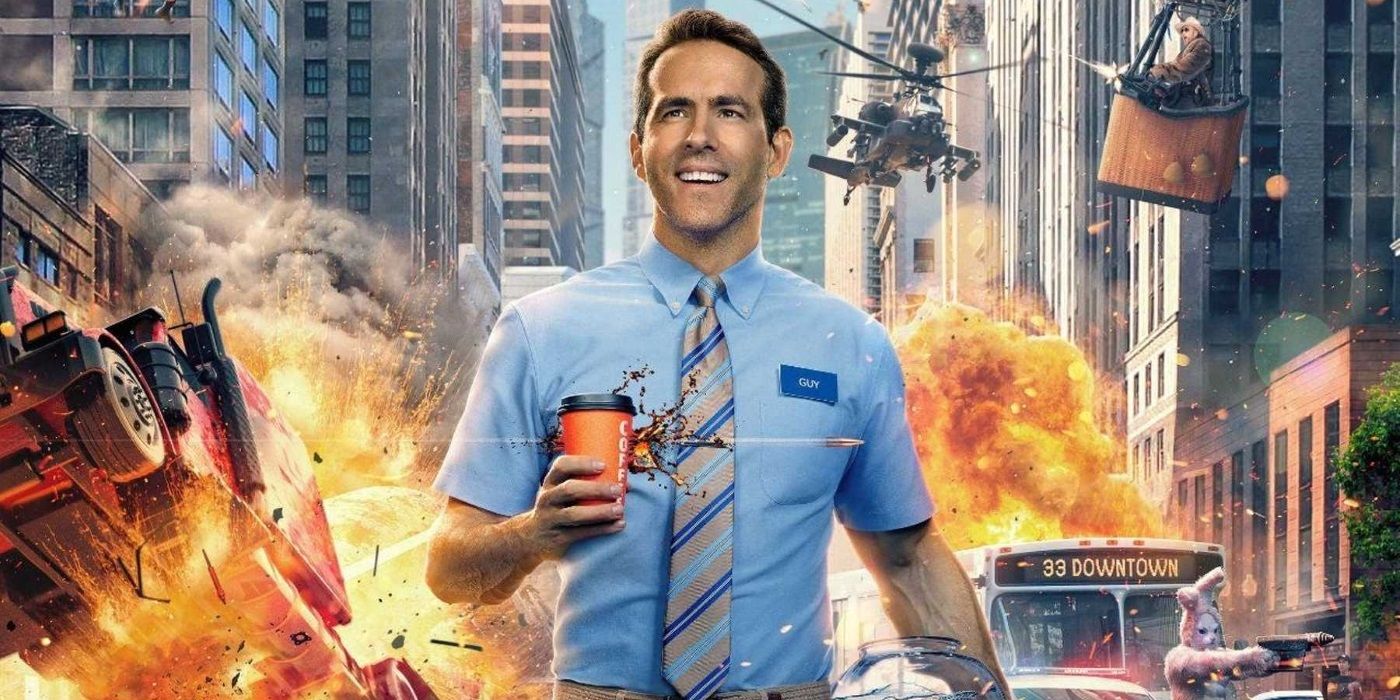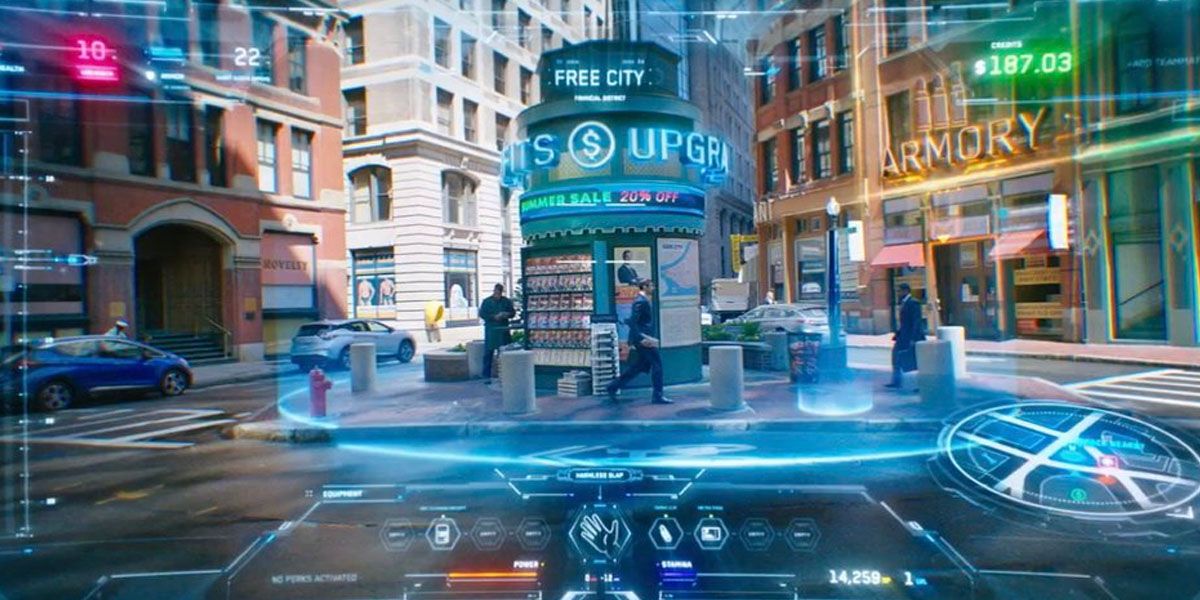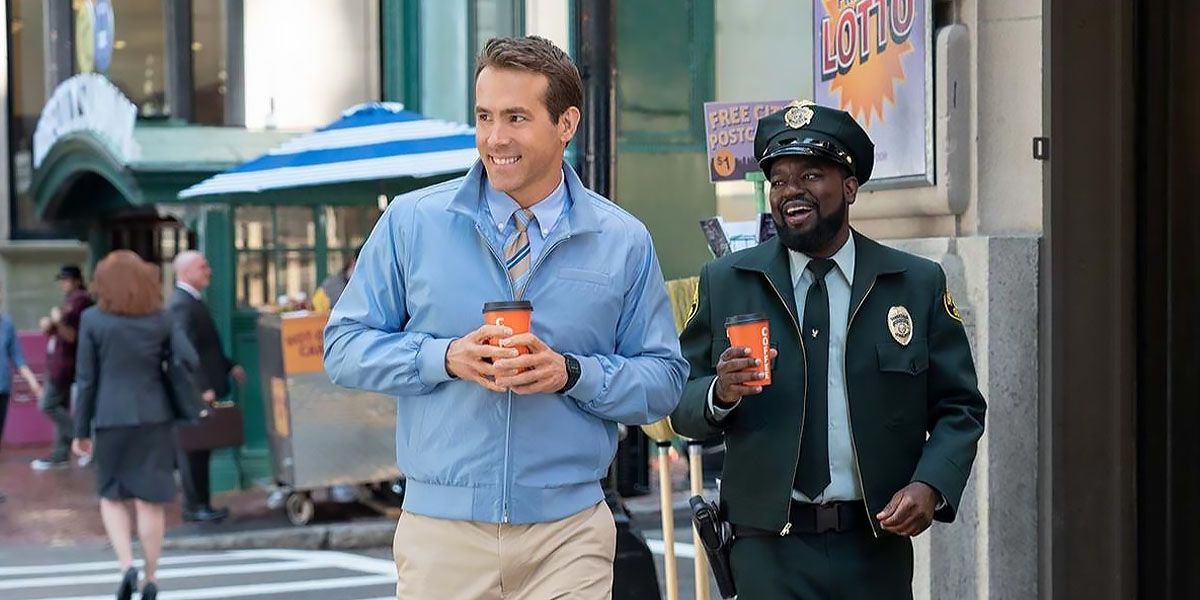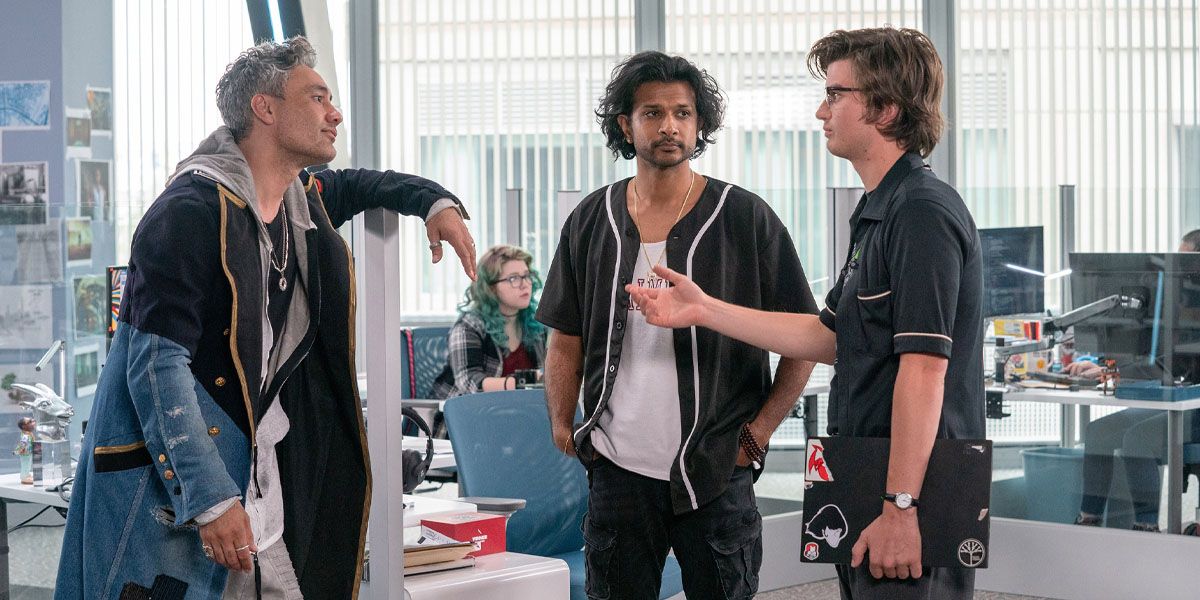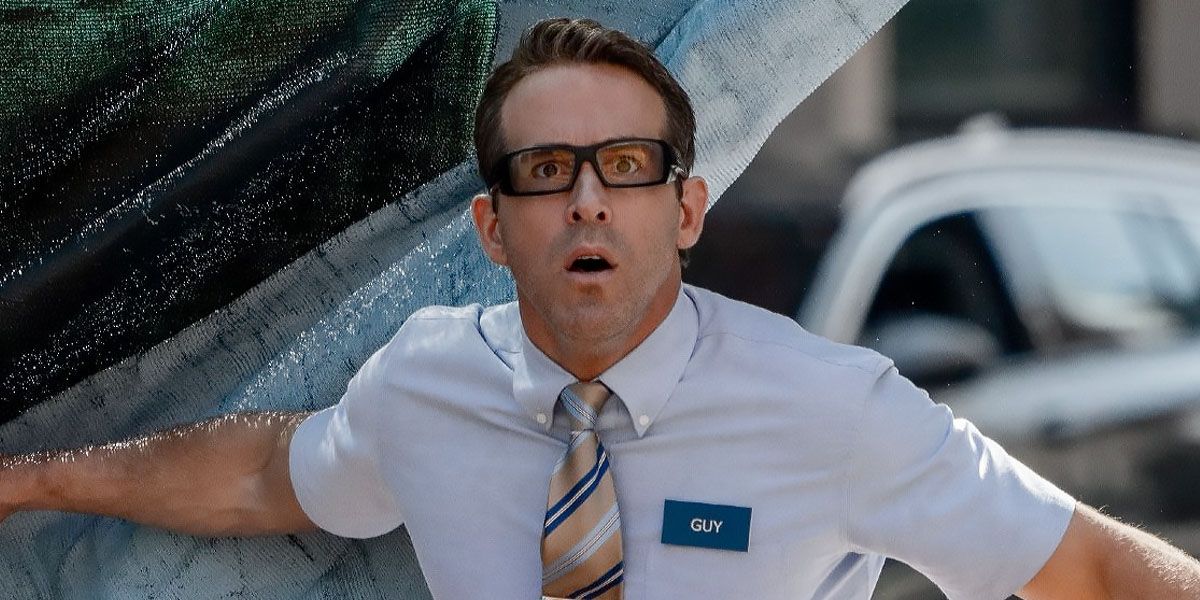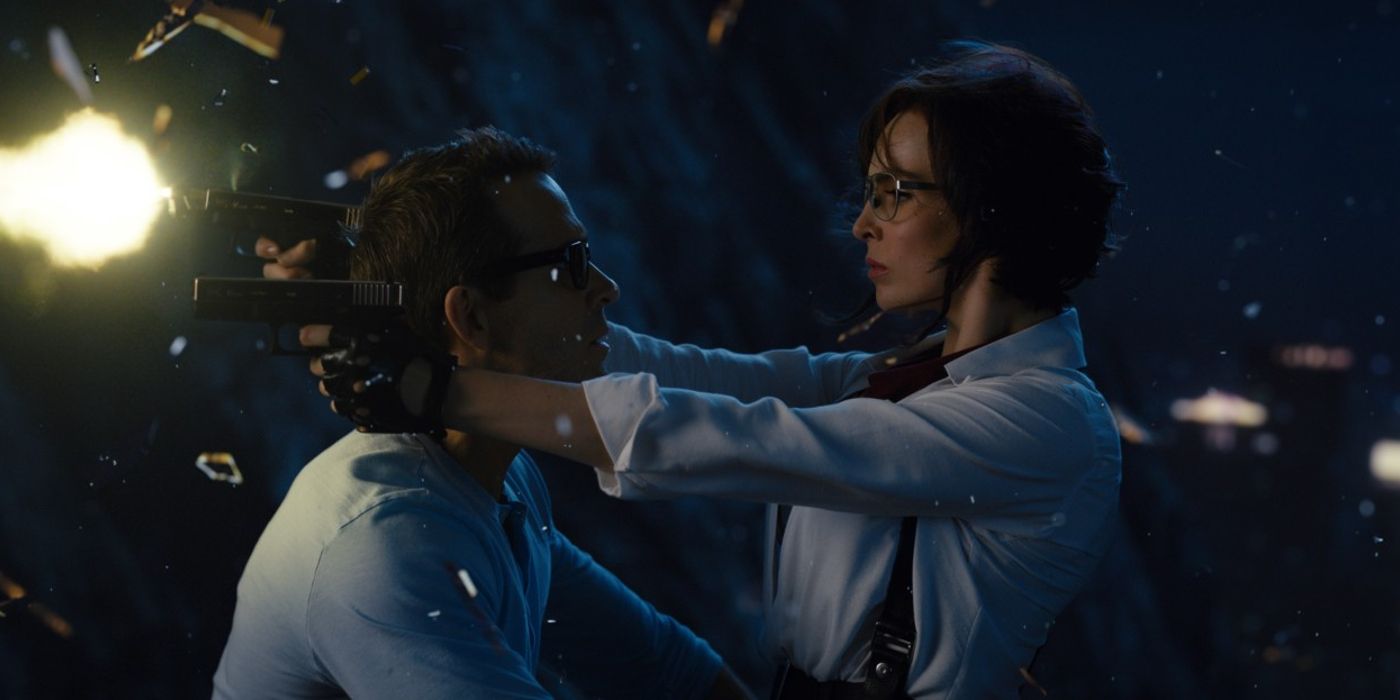WARNING: The following contains spoilers for Free Guy, now streaming on Disney+.
Movies have never shied away from broaching serious topics, chief among them constructs of philosophy. The Matrix, for example, is one of the largest mediums to have ever explored the simulation hypothesis. Video games, likewise, delve into philosophy from time to time. In fact, stronger AI and simulations are the major originators of the simulation hypothesis itself.
A crossover between the two media would be a natural place for philosophical ideals to emerge. Free Guy certainly doesn’t disappoint from this angle. The movie carefully examines the theme of free will , but it touches on many concepts in this examination. Even though this film is a comedy, its approach to philosophical constructs is no laughing matter, as it tackles a comparable number to The Matrix in its two-hour runtime. Now that the film is available to stream in the US, it allows for a deeper examination of some of the themes and ideas presented.
Free City is a Video Game With Guy Exploring the Simulation Hypothesis
A philosophical concept that has only emerged in its current form in the last few decades, the Simulation Hypothesis has resonated with the general public. The hypothesis states that, if humanity exists in a simulation, there would be no way to know. Certain aspects of the world seem to support this. In Free Guy, Ryan Reynolds’ Guy begins in a world that is a violent fantastic parody of the real world, but the simulation is true for him, and thereby the real world. The revelation of the world as a simulation is shocking for the people of Guy’s world, but not necessarily unbelievable. This is much like the perception of the simulation hypothesis in the real world.
Guy Explores Consciousness and the Turing Test
The Turing test, named after Alan Turing, isn’t so much a philosophical construct as a marker of technological advancement. This test claims that if someone cannot tell an AI is a simulation, then that program has broached the level of human consciousness. Gaming's change to become more realistic was certainly an influence on the film. Since Guy spends the first part of the film believed to be a hacker, he passes the Turing test. The question then becomes one of consciousness and ownership. Kantian philosophy claims that consciousness exists in the presence of thought, the origin of “I think, therefore I am.” Given that Guy not only passes the Turing test, but his code replicates at a rate similar to that of independent thought, Guy’s humanity isn’t in question.
Waititi's Ownership of Guy Questions Old Philosophical Traditions
The concept of ownership of those who can think is also a major theme, as Guy’s consciousness is in direct conflict with the man who owns him and his code, Taika Waititi’s Antwan. Antwan’s view of ownership echoes the way that he treats his employees like disposable chattel. Much like Aristotle and other classical philosophers, Antwan appears to believe that people who are born indentured aren’t able to gain consciousness akin to his own. For Jodie Comer’s Millie and Joe Keery’s Keys, their response is far more in line with modern interpretations of the ownership of sentient beings. Per Seneca the Younger’s response to Aristotle, beings of conscience are equal, which wins out over the structure of classical belief in Free Guy.
Free Will and its Essentialism Are Explored Throughout the Film
Naturally, Free Guy’s overarching theme is that of free will. However, a question that pops up unexpectedly is that of essentialism. This concept questions what defines humanity, and in Free Guy, that includes the ability to think independently. In this, Free Guy poses the question of what makes one capable of achieving independent thought and free will. For Guy, his programming allowed him to become independent. In this case, Lil Rel Howery’s Buddy may have been born with less capability of free will. The essential quality of Guy’s path to free will, as well as that of Camille Kostek’s Bombshell and Britne Oldford’s Barista, show that free will must have an initiating stimulus. This strengthens Free Guy’s central thesis of earning one’s own independence.
Guy’s Empiricism References the Allegory of the Cave
The video game characters of Free Guy are subject to a classic exercise in empiricism -- Plato’s Allegory of the Cave. In this, Plato says those who are only aware of their perceptions of reality think this is the sole reality. The reality of the Free civilians is a warped reflection of that which is true to the real world, much like those in Plato's cave.
Additionally, the concept of empiricism states that all is only as true as it is experienced. When the reboot takes place near the end of the film, being unable to experience reality causes it to stop existing. At the beginning of the movie, the Free civilians' idea of existence is limited to their perception of the cave, as they can perceive nothing beyond this until Guy puts on the sunglasses. If the characters’ perception is limited, reality only exists in a similarly limited way.
Moral Absolutism Clashes with Guy’s Shades of Grey
Finally, Guy becomes a figure in popular culture because he only does “good” in the game. This deals with the concept of moral absolutism, which states that there are things that are inherently good or bad, with no middle ground. As Guy continues to level up, we see him fight and end (video game) lives, curse and go directly against what Antwan believes is good. What’s more, the other characters in Free Guy seem to have a moral opposition to Guy’s lifestyle. This is shown through Buddy, who gets into an argument with Guy over his wardrobe and the fact that “we don’t wear sunglasses.” Guy overcoming this adherence to a strict moral code is one of the defining aspects of the movie. For most of the citizens of Free City, this absolute morality of right and wrong holds them back from becoming conscious beings. Guy, however, presents with a morality that is responsive to the situation, i.e., moral relativism. Even though it is not the central focus of Free Guy, this conflict of Moral Absolutism vs. Relativism is one of the major factors influencing the action.
Thus, the major arguments in Free Guy can be broken into many philosophical branches. From the Allegory of the Cave to the Simulation Hypothesis, Guy’s fight for consciousness happens to stumble upon a number of philosophical quandaries. Once again, a piece of popular culture serves to act beyond its simple premise to ask exactly what makes humanity human.

